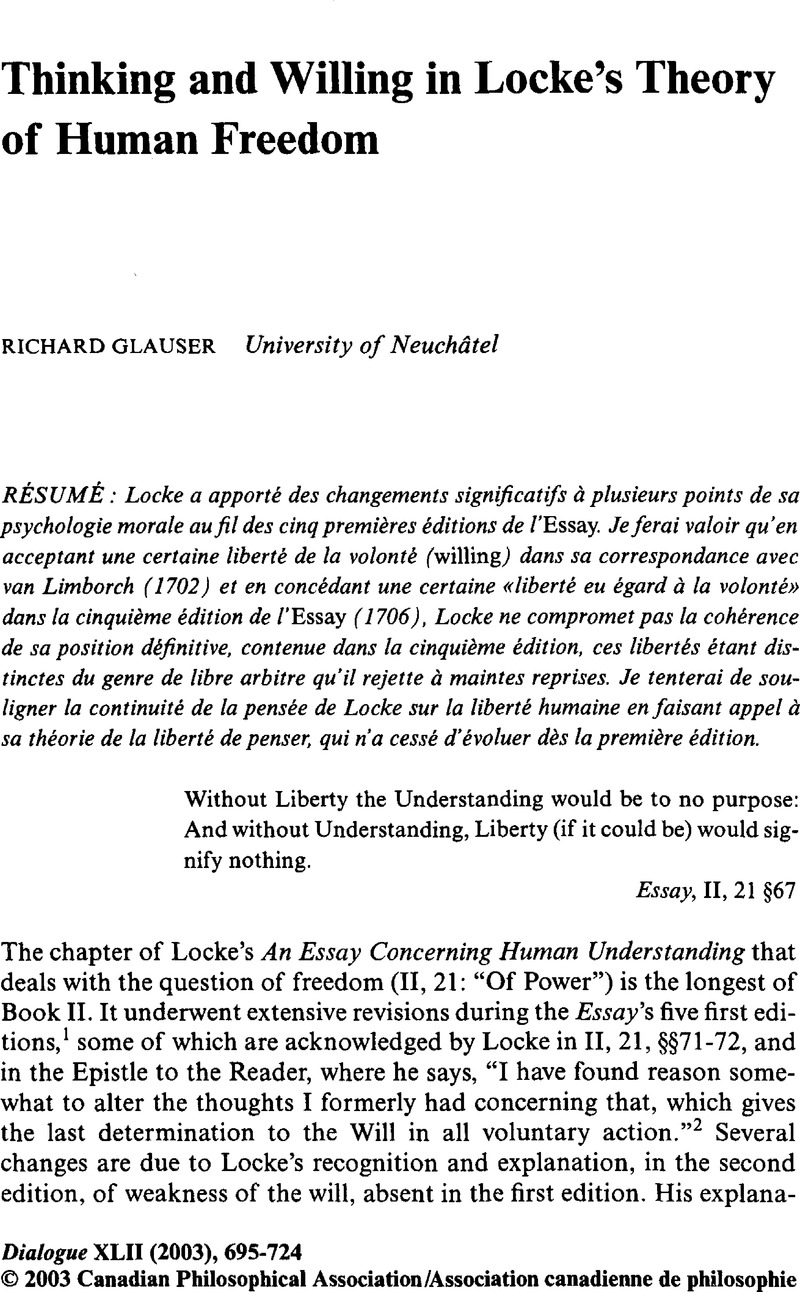Crossref Citations
This article has been cited by the following publications. This list is generated based on data provided by Crossref.
Glauser, Richard
2014.
Mind, Values, and Metaphysics.
p.
483.
Leisinger, Matthew A.
2017.
Locke’s arguments against the freedom to will.
British Journal for the History of Philosophy,
Vol. 25,
Issue. 4,
p.
642.
Moauro, Leonardo
and
Rickless, Samuel C.
2019.
Does Locke Have an Akrasia Problem?.
Journal of Modern Philosophy,
Vol. 1,
Issue. 1,
Leisinger, Matthew A.
2020.
Locke’s Diagnosis of Akrasia.
Journal of Modern Philosophy,
Vol. 2,
Issue. 1,
Leisinger, Matthew A.
2021.
Locke on the Motivation to Suspend Desire.
Canadian Journal of Philosophy,
Vol. 51,
Issue. 1,
p.
48.





